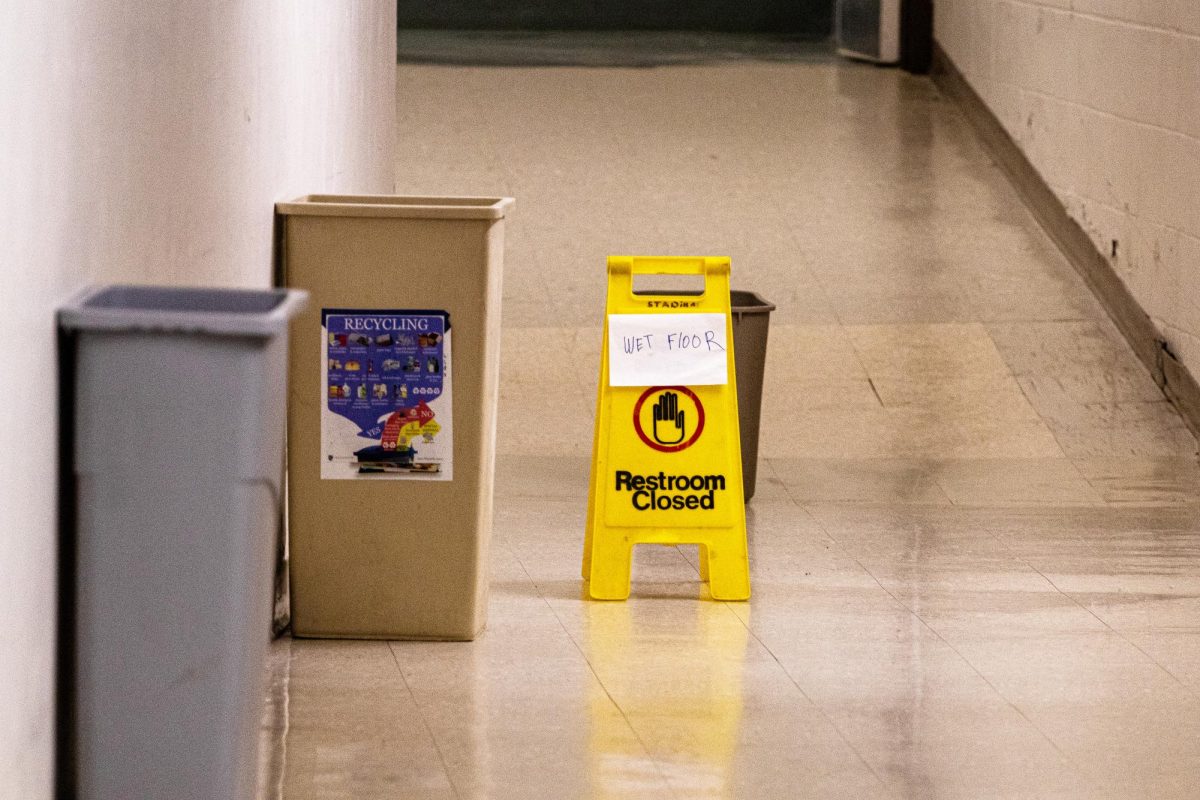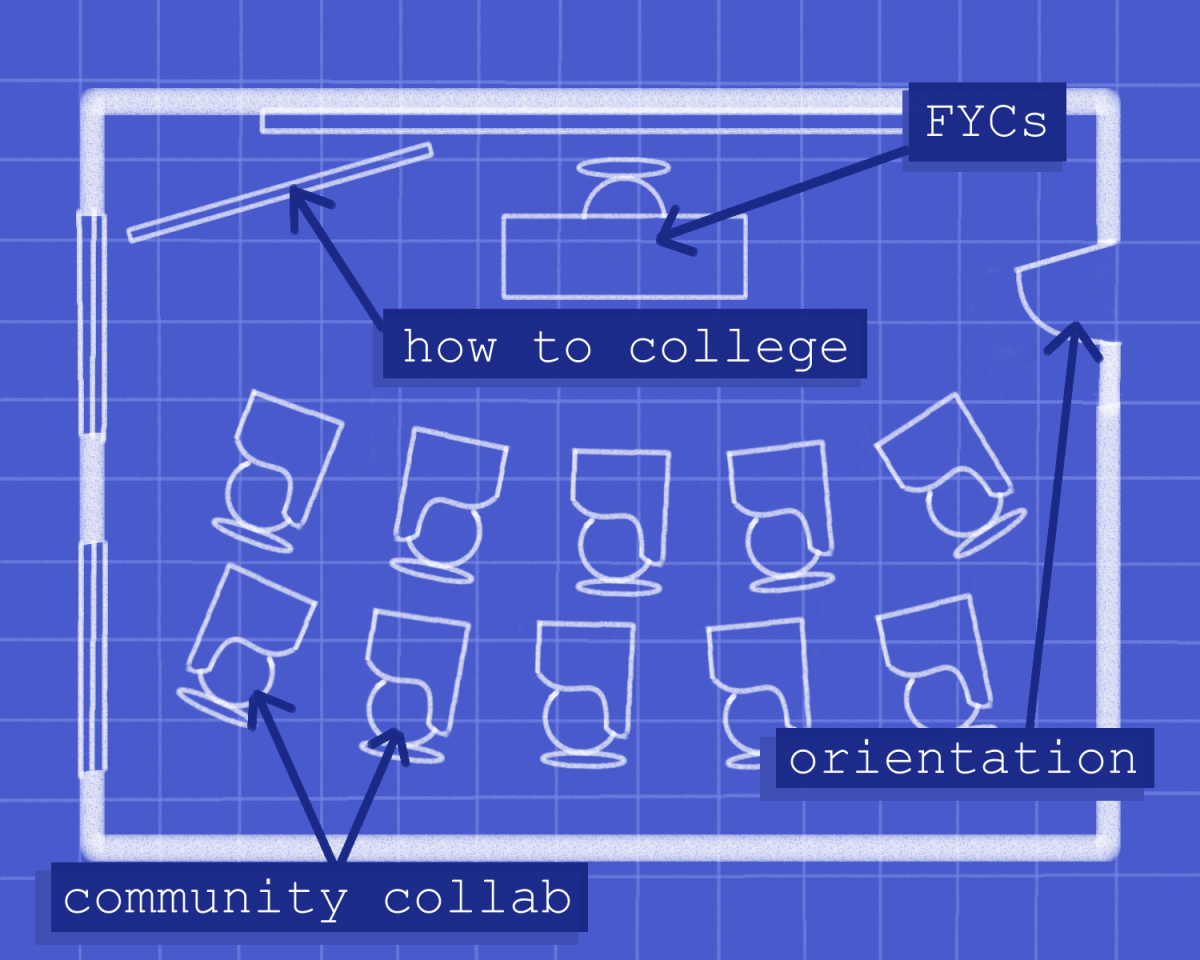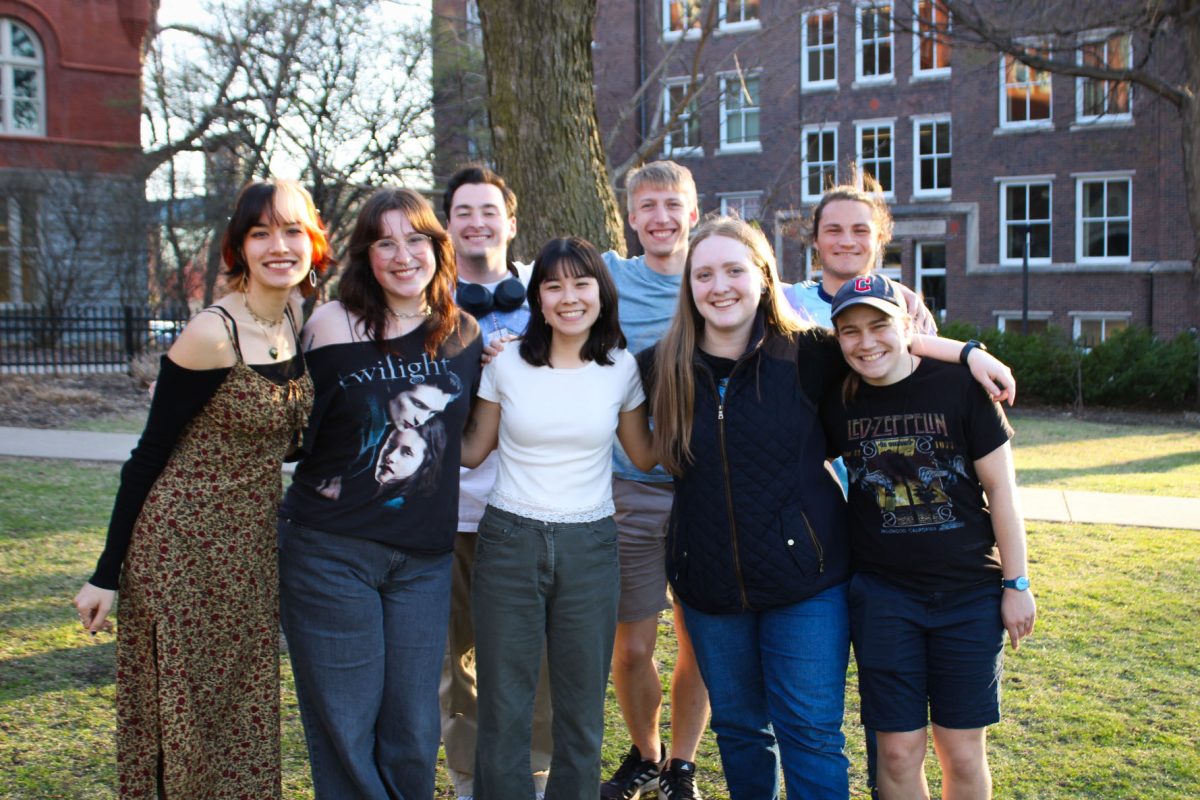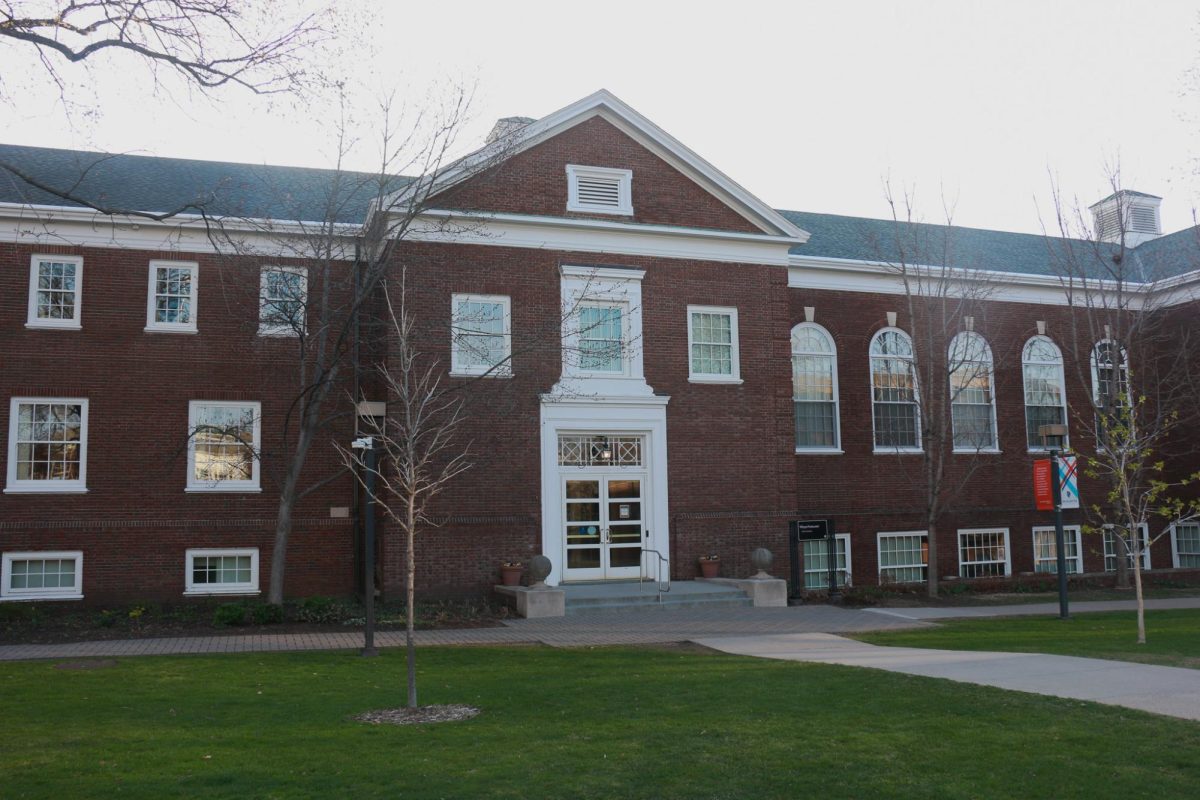
The Mac Weekly sat down with Sung Kyu Kim of the Physics Department, one of Macalester’s most beloved professors, to learn more about him and his legendary Contemporary Concepts of Physics course.
You teach Contemporary Concepts of Physics, one of the biggest classes at Macalester.
It has enrolled a lot of students, about 10,000 I think. We started in the late ‘60s. This is a course, actually, the students and I created together. They asked me to teach a physics course for non-scientists, and I didn’t know what to teach. I pulled out an old, easy book, and that wasn’t exciting for the students. The following year I said, ‘Hey, how about you guys help me out in creating a new course?’ Eventually, they wanted me to write a book. That’s how the textbook [I wrote] came out in 1975.
In your classes now, do you get mostly science students or non-science students?
The only science majors I usually get are seniors in their final semester. They’ve done their major, and they’re looking for a class they might enjoy. I have a handful of biology majors, for example, in my class right now. Sometimes I get chemistry majors. They’ve done their work and they want to sit back and learn about Einstein and cosmology. The unit on cosmology is more recent. When we started, we didn’t have that unit. I developed it after my sabbatical at the University of Chicago—it took a lot of work to develop that unit! [Laughs].
I remember that there were a lot of demonstrations in Contemporary Concepts of Physics. Which are the most fun for you to do?
In the first six weeks, they’re the most fun. It shocks the students—it’s all new stuff. We started with Einstein and then we talked about anti-matter—you remember Dirac? How fascinating his ideas were—antimatter and the implications for the universe; why the universe consists mostly of matter and not antimatter when physics theory says they should be in equal amounts. That’s actually still a big problem, a cosmological puzzle. All these big experiments you hear about, they’re hoping to find some answers.
You said that you enjoy shocking students.
Yes, well, with new ideas. And then I keep reminding you that these are the greatest ideas created by the human mind—a little bit providential [laughs]. I mean after all, it’s Einstein, Dirac, and Stephen Hawking—the greatest minds. And then the last unit, we talk about the quantum world. We probe deeply down to the microscopic world and talk about things like the uncertainty principle and its implications, where all the forces come from, et cetera, and then I get to tell this cosmic history. I can tell you how you fit into the cosmic scheme of things. And then my final lecture—you remember?
Can you also tell me about your experience with the Summer Physics Institute?
That we started in 1993. By word of mouth, we get students from about 25 different colleges and universities. That institute is fun. It’s mostly pre-med students, so it’s a totally different clientele. They work very hard because they want to get into medical school. I take them out to lunch, three or four people at a time. Physics is all they do, so after the lecture we go out to lunch and that’s how I get to know them. I’ve had students from Princeton, Harvard, Yale, Stanford and all these other well-known schools. Last summer I had a student from Bowdoin, and he told me that his roommate this year is the son of Larry Summers, former Harvard president. I get to meet all of these interesting people and hear their stories.
I think it’s fascinating that you teach so many students, but you still take the time and effort to get to know people.
That’s the part that is the most interesting. Essentially, I like ideas—some people, that’s all they want—but I like people. Hopefully that comes across in the classroom.
Some of those people, your students, actually teach here at Macalester College.
Actually I think most of the Mac alums that teach here are my former students [laughs].
What is it like to serve on the faculty alongside former students?
Oh, it’s great! Sarah West in economics, she’s one of my former students. And in geography, Laura Smith. And Peter Bognanni, in the English department, as well as Erik Davis in Religious Studies and Martin Gunderson in Philosophy. One year they had six distinguished alumni in Macalester Today and I had taught four of them.
It sounds like taking Contemporary Concepts of Physics is a good idea.
Well…[laughs]. I only teach Concepts during the year now, that’s why I’m still here. I think that even after I’m retired, they want me to come and teach a class—one section, maybe—if I want to. I think they’ll let me teach Contemporary Concepts until I—well they didn’t say until I die, but… [laughs].
So Macalester students can count on this class being here for a long time?
Let’s put it this way: if there’s demand, I’ll teach it. [Laughs].










Joanne Miller • Sep 12, 2019 at 7:41 am
yay google is my queen assisted me to find this great site! .
Max Edmunds • Sep 11, 2019 at 12:55 am
This video post is truly enormous, the sound feature and the picture quality of this tape post is in fact remarkable.
Gordon McGrath • Sep 5, 2019 at 3:29 am
I have realized that of all kinds of insurance, health insurance coverage is the most questionable because of the conflict between the insurance policies company’s necessity to remain adrift and the client’s need to have insurance coverage. Insurance companies’ commissions on well being plans are certainly low, hence some providers struggle to generate income. Thanks for the suggestions you write about through this site.
Dewey Sorge • Jul 23, 2019 at 3:49 pm
Mass parsite http://bit.ly/2W9CVkn